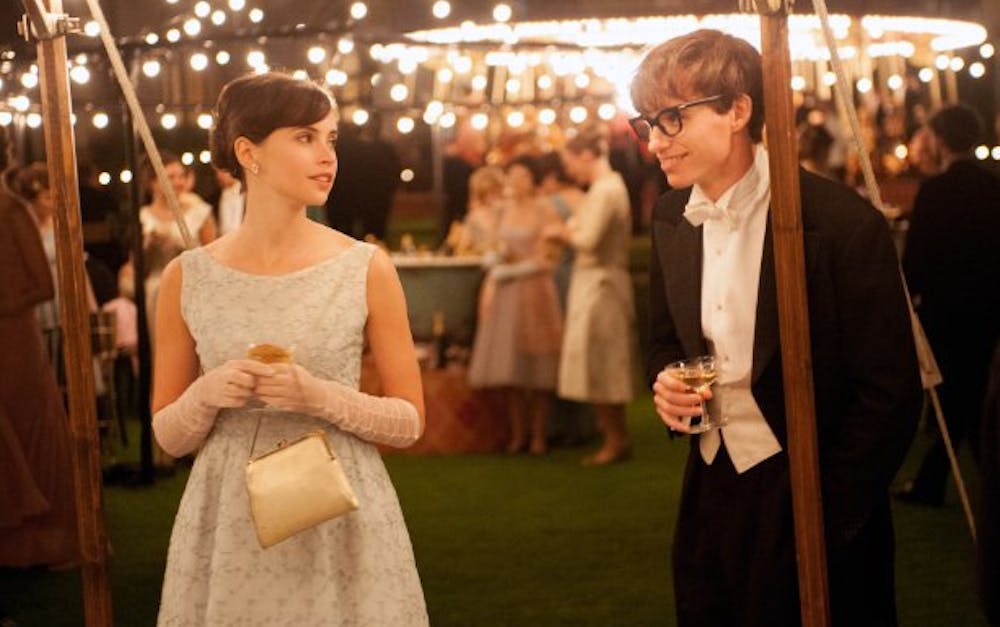At 21, doctors gave now–renowned cosmologist Stephen Hawking two years to live. Twenty five years later, his book, "A Brief History of Time," spent four and a half years on Britain’s "Sunday Times" bestseller list. When he was 57, his former wife, Jane, wrote a memoir about their lives together called “Music to Move Stars.” When writer Anthony McCarten read this book in 2004, he began his quest to translate their story into film.
“It was one of those moments in my career when I thought, this project won’t just come to me—I have to go and get it,” he said. He showed up at Jane’s door to propose the idea, but she wasn’t on board right away. That day began an eight–year process to option the film rights.
Ten years down the road, many are calling “The Theory of Everything” Oscar worthy. But that buzz has had little effect on stars Eddie Redmayne and Felicity Jones, who’ve known all along that the Hawkings would be their ultimate critics. “There’s this amazing sense of euphoria that you would be privileged enough to get to play this part, but it’s also followed by a deep sense of responsibility,” Redmayne explained.
The Hawkings weren’t disappointed. Stephen and Jane came to see it, “and when the film finished, [Stephen] had tears coming down his cheeks,” McCarten remembered. Jane “said that she felt like the was floating on air. This felt like the end of a journey.”
Redmayne’s journey to play Hawking began long before filming began. “I had chased the film pretty hard,” he said. Redmayne attended Cambridge, where Hawking still works. “He was a rock star there,” he explained. “I’d heard his voice and caught glimpses of him.”
To prepare to take on the role, Redmayne visited a London neurology clinic and spent time with patients suffering from ALS. Hawking’s life–changing motor neuron disease, however, doesn’t define the film. Instead, it’s woven into a narrative of Hawking’s life at home with Jane, which screenwriter McCarten calls “a one–of–a–kind love story that I don’t think has a precedent in film.”
A one–of–a–kind love story seems fitting for a one–of–a–kind man, who changed Eddie Redmayne’s “theory of everything.”
“The amazing thing about spending time with Stephen is that he was given two years to live at the age of 21, and he describes that every moment or day beyond that is a gift for him. He pulled himself out of a melancholia and has managed to live every second of every minute of his life as passionately and as fully as possible,” Redmayne said. He “has been a great inspiration for me. I feel like I certainly get caught up in the day to day banalities and worries of life, and you can forget that we only have one shot at this.”







